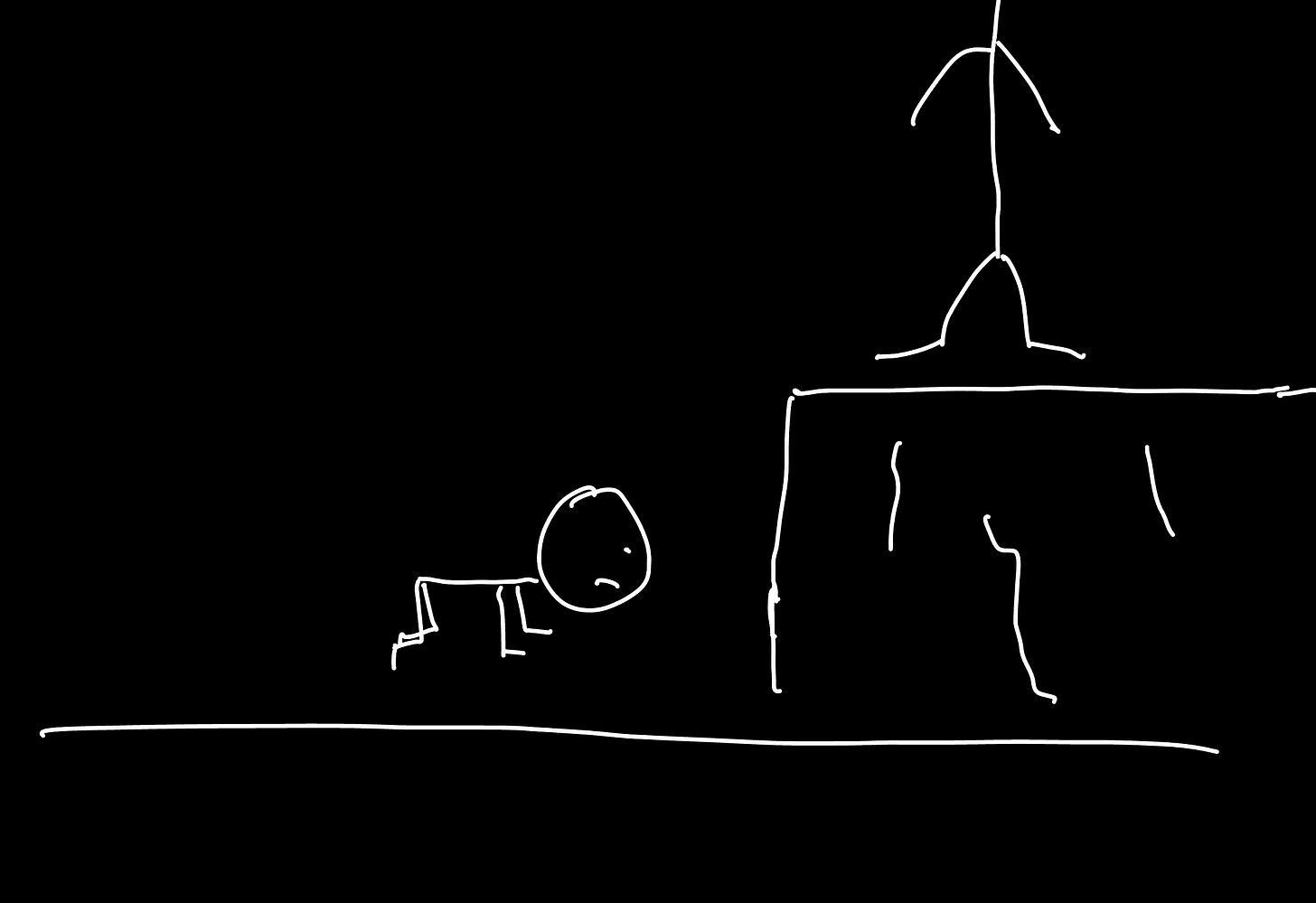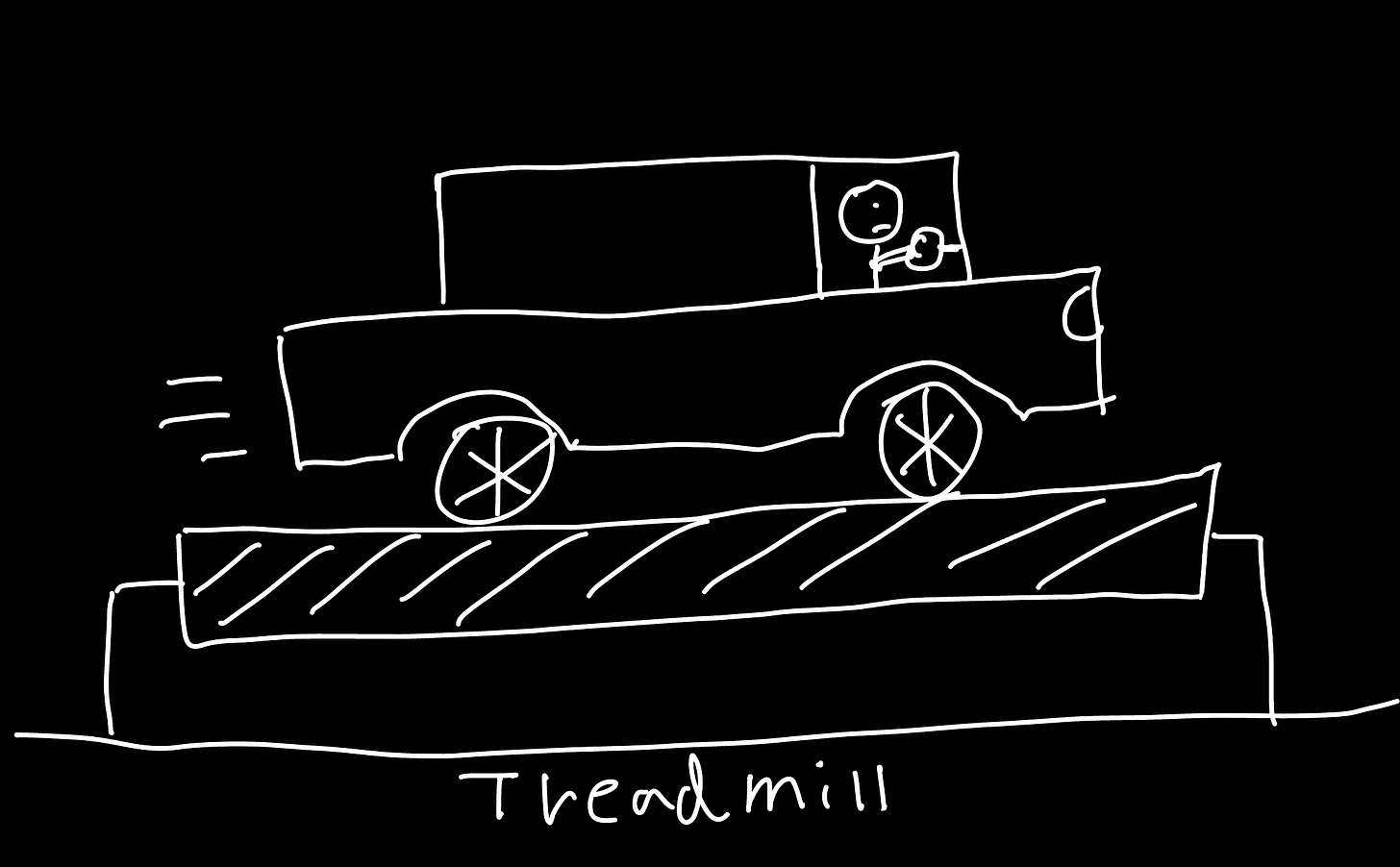📚 Buy the Book → 12 Rules for Life: An Antidote to Chaos
Equity. That’s the difference between owning a home vs. owning a mortgage. A knowledge that would have been helpful before we (read: mom) signed the dotted line.
The word “equity” has many definitions based on the context and who you ask. The term often serves as a stand-in for “balance” to keep fairness in view (Hey, I have a lot of ____ Equity in this!).
However, its real definition is “ownership”.
The American Dream
The American Dream is synonymous with home ownership.
It has been a long-standing staple of political campaigns dating back to FDR (i.e., New Deal Programs) and the Bush administration, which resulted in a subprime crisis (i.e., the 2008 recession).
For an immigrant kid in ESL classes, “The American Dream” meant the school bus wasn’t going to drop me off in front of the apartment complex where I lived. It was a major motivator because I found it embarrassing. I interpreted it as a signal that I had not achieved the cornerstone of the American Dream: homeownership.
Home Equity is exactly what my mom and I did not have. Every bank rejected us for a mortgage except one: Wells Fargo.
Talk about dancing with the devil, but we all have a price song.
For me, that was “shame”.
For my mom, that was “her son”.
The difference between the market value of the property and the amount owed on the mortgage = home equity.
In other words, it’s the portion that my mom owns at the point of sale. Ideally, this ownership percentage goes up as you make payments towards a mortgage.
Let’s not complicate it.
At the core, a mortgage is essentially a monthly payment plan for 30 years.
This concept is so powerful that it made its way down from homeownership to everyday items (i.e., iPhone). It exists today in the form of “Afterpay” or “Klarna”.
The imbalance or lack of equity is the potion that turns a once equitable person into a slave (read: debtor) or a tyrant (read: creditor).
Simply put, it’s about the power dynamic, and it goes far beyond homeownership:
Company and employee
Romantic relationship
Roommates and you
Boss and employee
Business partners
Family
etc.
Slave and a Tyrant
In F1 racing, there is a concept called “drafting” where you cut down on your wind resistance by standing closely behind someone else.
In the beginning, the person doing “less” may feel like they are dining off of someone else's dime (read: free lunch). For example, a roommate who doesn't spend money on shared items (i.e., detergent).
What you see is free detergent. What you don’t see is a loss of equity.
The other person had to “cover” the full cost of detergent. To do so, they had to make more money (read: surplus) to cover for your lack of. Eventually, you become a slave. The other? A tyrant, as the gap has grown too much for you to cover overnight.
It’s the portrait of a capitalistic society.
“Money is freedom, and the more you have, the more you can exert your will on the world.” - Codie Sanchez
On the flip side, when you don’t have equity, the world exerts its will on you.
What Cars Can Teach Us
Every car in the US has a governor, which serves as a device that limits the top speed. It’s a hedge, a protection against the unpredictable nature of high-speed driving. Similar to how Marc Cuban hedged his position after selling to Yahoo by buying puts.
For us, this is called Self-Respect.
To build equity, you need accountability, and that begins with self-respect.
“If we wish to take care of ourselves properly, we would have to respect ourselves.”
- Jordan B. Peterson
Similar to owning a home vs owning a mortgage. There is a subtle but stark difference between self-respect and expectations, which are often used interchangeably.
Expectations are external and dependent on others.
The downside is a mere disappointment.
Self-respect is internal, it is how you treat yourself.
The downside is the loss of dignity, which is far more costly than disappointment.
Without equity, you become a slave to a tyrant (read: a person with equity), but we can both be equitable (read: balanced relationship). However, there will be situations where your equity just simply isn’t valued. If this is the case, you have to take it elsewhere.
In a free market, you can test the value of your equity.
Again, it starts with having equity, which is the function of self-respect.
Well, what’s the first step to “self-respect?”
“You could begin by treating yourself as if you were someone you were responsible for helping.”- Jordan B. Peterson
Life Happens Outside,
Su Hawn
🏕️ Wisdom from the Outpost: Walking Does Wonders for the Mind - Costa Rica






